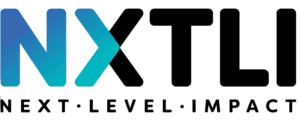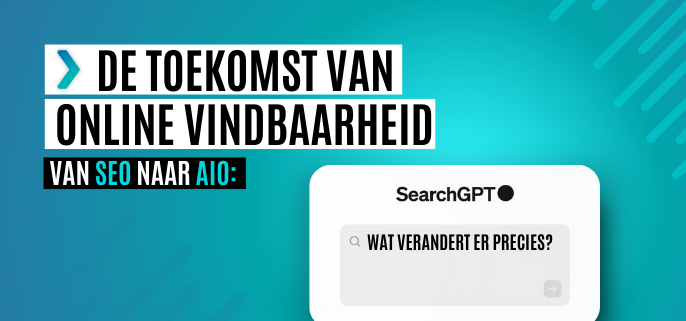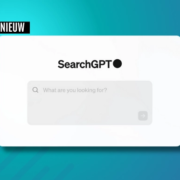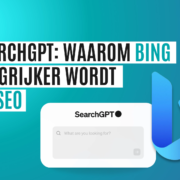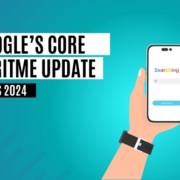From SEO to AIO: the future of online findability
More and more people are now using AI for answers to their questions, rather than a search engine like Google. Whether they are searching for certain information, product recommendations, manuals or shortlisting, AI-powered tools such as ChatGPT, Claude, Gemini and Perplexity are rapidly becoming the starting point for more and more people. This requires a new approach to becoming visible in these AI tools: AI Optimization (AIO).
AI search as a replacement for Google Search
In mid-2023, I started testing myself to do all the information I wanted to look up, and for which I previously used Google Search, through AI. As a result, I now start with AI 99% of the time and use virtually no Google search engine. This is a trend that is going on worldwide. This shift from general search to AI-driven interactions also causes us to think differently about the approach to online findability for websites and businesses.
SEO, or search engine optimization, has been an important part of online marketing for many years. SEO is optimizing your website and content to rank high in search results, with Google being the main player. But with AI comes an important component: AIO, or AI Optimization. To what extent this will completely or partially replace SEO in the short or long term, we do not know, of course, but that AIO will play an extremely important role in your online findability is a certainty.
AIO goes a step further than SEO. It focuses even more on the intent behind search queries and is all about creating content that directly provides real value to the user. Where SEO focuses on search engines, AIO is about optimizing content to directly answer questions people ask through AI systems. As AI-driven search engines become more dominant, this will increasingly shift.
What exactly is changing?
The transition from SEO to AIO follows fundamental changes in the digital landscape:
Changing search behavior
People are increasingly searching with natural phrases or questions rather than single keywords. This means that content must not only meet technical optimization criteria, but must also increasingly match how people search.
Emergence of AI-driven search engines
New AI technologies such as ChatGPT, Perplexity and Google's AI views (which is still in rollout phase) are providing increasingly direct and relevant answers to search queries. These technologies better understand the context of a search query and provide in-depth, relevant answers that go beyond general search results.
Shift to 'zero-click searches'
Users are increasingly seeing their answers directly in search results, without clicking through to a Web site. This is forcing marketers to think about how to still make their content visible and effective, even when there is no click-through to the Web site.
With these changes, a new approach is needed to remain discoverable to your audience online, where traditional methods must be expanded and/or adapted to remain relevant.
What is the impact on website visits?
While exact numbers are difficult to predict, we do see some trends and research:
Decline in organic search engine traffic expected
Experts estimate that search volume through search engines such as Google could drop by 25% in the next few years. This decline could have a major impact on businesses that rely largely on organic traffic. In some businesses, we have already seen even larger declines. It is important to prepare for this and develop alternative strategies (see also Gartner Report and Prepare for Searchquake).
Increase in AI-driven search traffic
In contrast, traffic through AI-driven search engines is expected to increase by 50% to 100%. This presents opportunities for companies that succeed in creating content that is picked up and displayed by AI systems. AI-driven search engines such as ChatGPT could completely change the way we consume information (see also Insight Partners and Google AI Overviews).
This means that businesses can no longer rely solely on traditional SEO strategies to stay visible online. This shift is also referred to as a "Searchquake," which significantly undermines the foundation of previously used SEO strategies.
The key to success with AIO
AIO requires a different approach to content creation and optimization. Here are some key pillars:
Intention over keywords
Understanding what your target audience really wants to know is more important than just using keywords. Content should not only be informative, but also address users' specific needs and questions at different points in their fan journey. Consider using clear personas (a detailed description of a fictional customer who represents a specific group within your target audience) and search intent research to better understand what really moves your audience.
In-depth, valuable content that answers questions
Superficial and generic articles are a thing of the past. AI systems prefer content that offers real value and best answers to questions. This means that you need to connect very well with the questions your audience has, elaborate on specific topics much deeper, create more content from your own experiences, offer extensive research or analysis and enrich your content with multimedia such as videos and infographics. This will also prepare your content right away for the multi-modal AI era of text, images, video and audio.
Structured data
Make sure AI systems can easily interpret your content by using structured data. This can be achieved by using what is known as schema markup, which allows AI search engines to better understand what your content is about and how it is relevant to specific searches.
Natural language
Write as if you were in conversation with someone. This means that your content should not only be good, but also come across as natural and authentic. It is important to find a conversational tone that both informs and connects.
The growing importance of PR in the AI era
If you want your company and/or yourself as a person to be highly visible in AI, it is also becoming increasingly important to get serious about your "Public Relations. The AI model needs to know who you are and what you stand for. How do they know that? By the data they are trained on. This data comes largely from the public Web. The so-called "Common Crawl archives" (archives that contain a copy of much of the Web, including Web pages, texts, and other online resources) make up 70-90% of what AI models learn, depending on the model.
Unlike search engines where SEO metrics and link traffic play an important role, AI models learn at the sub-word level and do not pay attention to links. Therefore, for companies aware of AI, it is essential to have relevant text about themselves in as many places on the Internet as possible. Blogs, transcripts of podcasts and webinars, YouTube subtitles, news articles and books, make sure you have a presence in as many relevant places as possible. Where from the perspective of an AI model, an online article on a smaller media platform is just as valuable as an article on a leading national platform.
And who can help with that? Public Relations. PR focuses primarily on getting placements, which make you visible in places outside your own channels.
If you want to become highly visible in generative AI models, we recommend focusing your PR strategy on volume, to be present everywhere. From guest articles in local newspapers to responses to relevant LinkedIn posts. Every bit of text counts.
Don't forget about opportunities with relevant trade publications, either. If you have a good publication in a trade journal that is read by your audience, chances are it will also be published online and bring you to the attention of journalists. Who in turn may approach you for an article they are working on, if they see you as an important expert on that topic.
The caveat, of course, is that you want to be in as many places as possible that are credible and trustworthy for your brand. So it's time to get started on a PR strategy. PR may become an important part for you in the AI era.
How do you incorporate AIO into your content strategy?
With the increasing need for AIO, it is advisable to make adjustments to your content strategy.
Here are the key components to get started:
Focus on 'Topic Expertise'
Become the source of information for "your" topic by creating comprehensive, in-depth topic groups (content clusters) and linking them together on your Web site. Creating these content clusters helps demonstrate your expertise on this topic and show AI systems that your site is the place for reliable information on these specific topics.
Optimize for 'highlighted summaries'
Answer specific questions clearly and concisely and use structural elements such as lists and tables. This helps AI systems to highlight your content in so-called "featured snippets," which increases the chances of a zero-click view.
Invest in "long-form" content:
Write comprehensive e-books, white papers and in-depth articles (think at least 1,500 words) with a logical structure. Long-form content is often seen as more valuable and can help increase your authority and credibility in the eyes of both search engines and users. This content is what people with a certain intent want to view more extensively and is also more durable. This serves a very different purpose than "short-form" content that people see on socials. That's not what people are specifically looking for and this is what they happen to see coming along in their timeline. That content is much more intended as entertainment, newsworthy or inspirational.
Improve your E-E-A-T signals
E-E-A-T (expertise, experience, authority & trust) is already important according to search engines since 2022. For AIO, this will come into play as well. Show your expertise by sharing unique insights and build your authority through collaborations and publications in as many (reputable) sources as possible. This not only helps improve your visibility, but also build trust with your audience.
Implement structured data
Make sure AI systems can easily understand your content by using structured data called schema markup. This means adding extra information to your content, such as tags and descriptions, that help search engines and AI understand what your pages are about. This makes your content appear better in search results, and your information is more likely to stand out in AI-driven search engines.
Optimize for voice search
Use natural spoken language that matches how people talk. Voice search is becoming increasingly popular, and it's important to make sure your content is easily accessible for this new way of searching.
Create multimedia content
Integrate videos, infographics and interactive elements into your content and provide transcripts and detailed descriptions. Multimedia content is becoming increasingly important in a world where AI-powered search engines can understand and display a more diverse set of media formats.
Looking ahead: The future of AIO
The transition from SEO to AIO represents a major change in how we approach online findability. It's no longer about optimal keywords and backlinks, but about actually understanding and serving your audience with valuable content.
Companies that adapt quickly to this change will have an edge in the coming years. It's time to look beyond the SEO best practices of years ago and focus on creating real value with your content. In the world of AIO, quality is king, and your knowledge and expertise are the keys to online success!
Stay on top of the latest developments, experiment with your strategies and always keep your content strategy up-to-date. Have questions? We're here to help.
Invitation to monthly AI inspiration sessions
We would like to invite you to join us on the last Friday of every month to explore the world of AI. We dive into the latest developments, discuss current updates and share valuable experiences. Together we inspire each other, discover the possibilities of AI and prepare for the upcoming changes in our field. These sessions are designed to increase your knowledge, expand your network and give you an edge in the rapidly changing AI landscape.
Would you like to attend? Then sign up

